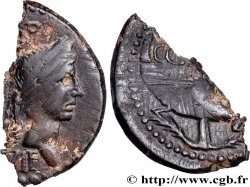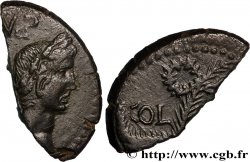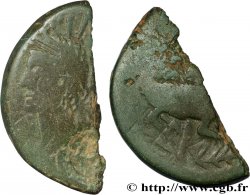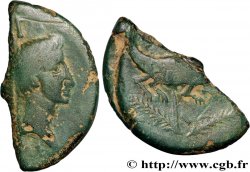Obverse
Obverse legend : [IMP// DIVI F/ P] - P.
Obverse description : Tête laurée d’Auguste nu à droite.
Obverse translation : “Imperator Divi Filius Pater Patriæ”, (L’imperator fils du divin père de la patrie).
Reverse
Reverse legend : COL - [NEM].
Reverse description : Crocodile enchaîné à un palmier qui est surmonté d'une couronne ; sous le crocodile, deux palmettes.
Reverse translation : “Colonia Nemausus”, (Colonie de Nîmes).
Commentary
Historical background
NEMAUSUS - NÎMES
(1st century BC - 1st century AD)
Nemausus (Nîmes) was the capital of the Arecomic Volques. According to the coinage, it is largely influenced by Marseille. During the first century BC, in order to counterbalance the influence of Narbonne, did she support the revolt of Sertorius in Spain against Metellus and Pompey? The colony of Nîmes seems to have been founded by Tiberius Nero, husband of Livia and father of Tiberius and Drusus senior, in 45 or 44 BC.. -VS. Some authors see it rather as a creation of Caesar himself on his return from the Spanish campaign.. The city received the "Jus Latinum". After the Battle of Actium in 31 BC. -VS. , marking the victory of Octavian and Agrippa over the fleet of Marc Antony and Cleopatra and the conquest of Egypt the following year, Octavian demobilized part of his legions, which had become too numerous after the victory. The veterans received their "honesta missio", a kind of pension in cash and in good funds. Many veterans came to settle in the province of Narbonnaise and a large contingent settled in Nîmes. The very important coinage which seems to start from 27 BC. -VS. shows the commercial dynamism of the city which became one of the richest in the region and which left us impressive monuments (the Pont du Gard, the Maison Carrée). The city changed status in 24 BC. -VS. , becoming a Roman colony under the name of "Colonia Augusta Nemausus" and dominating the territory of the Volques Arécomiques.







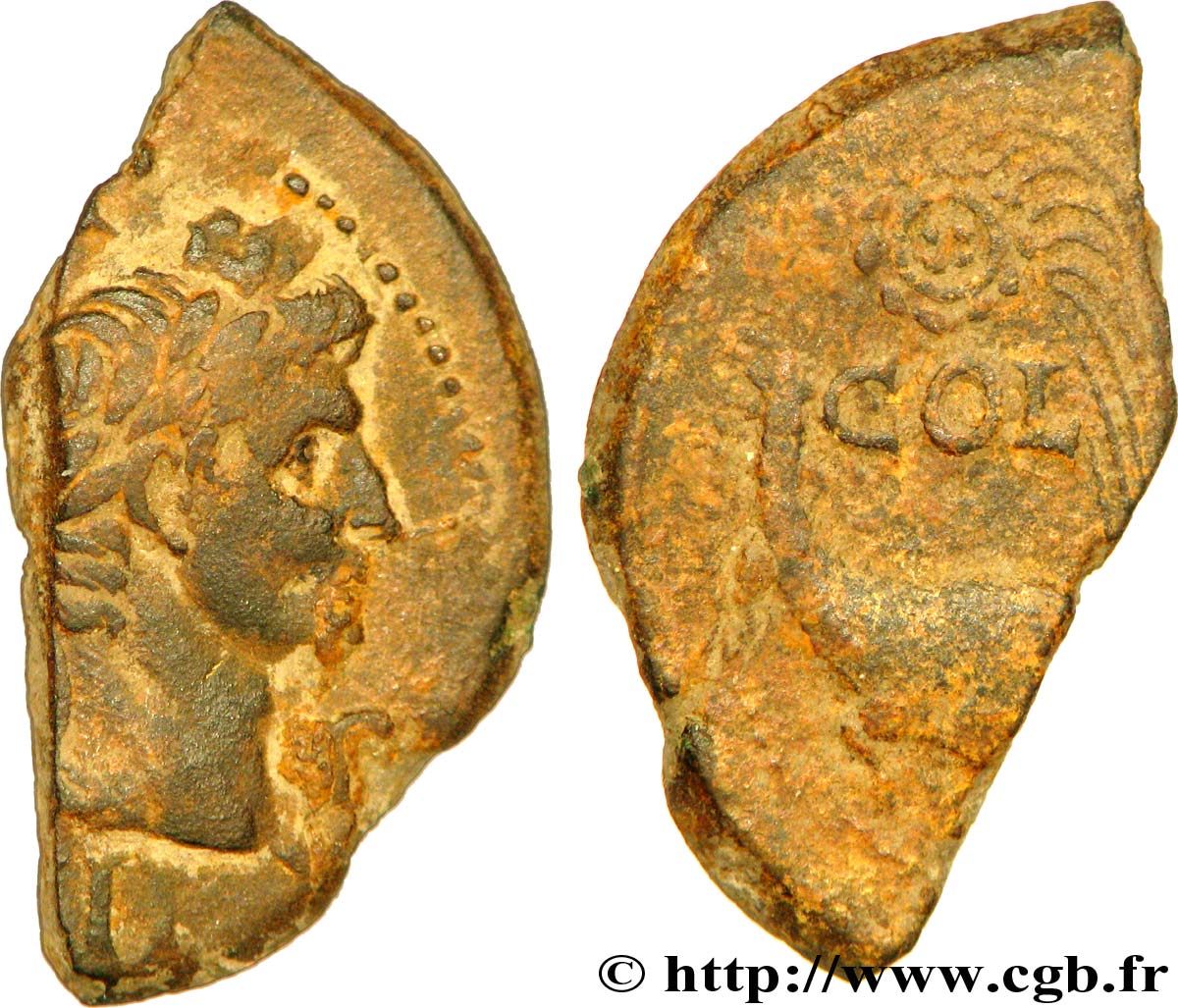
 Report a mistake
Report a mistake Print the page
Print the page Share my selection
Share my selection Ask a question
Ask a question Consign / sell
Consign / sell
 Full data
Full data